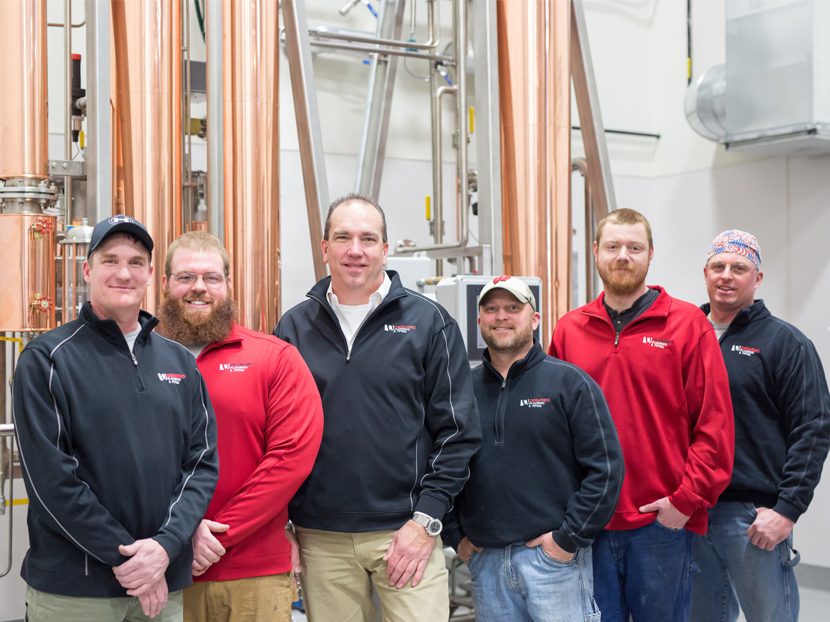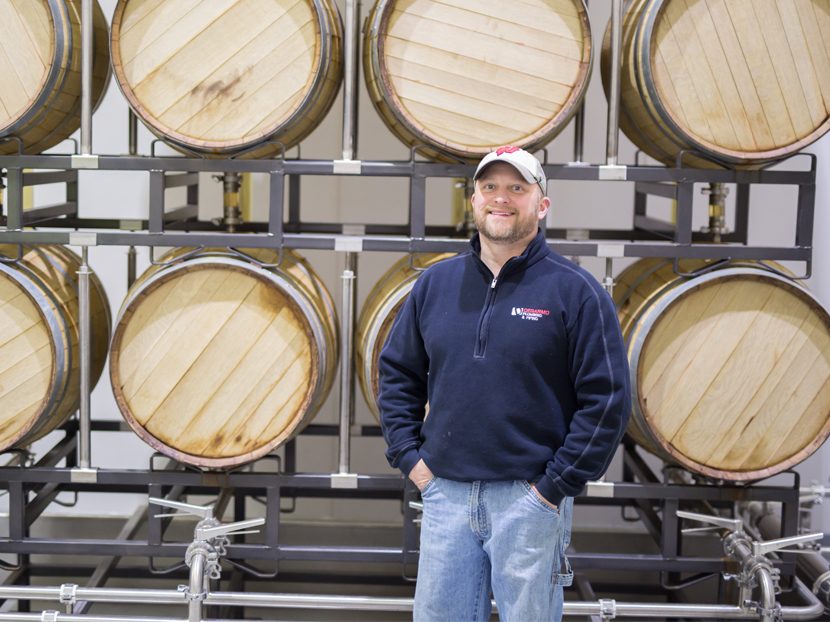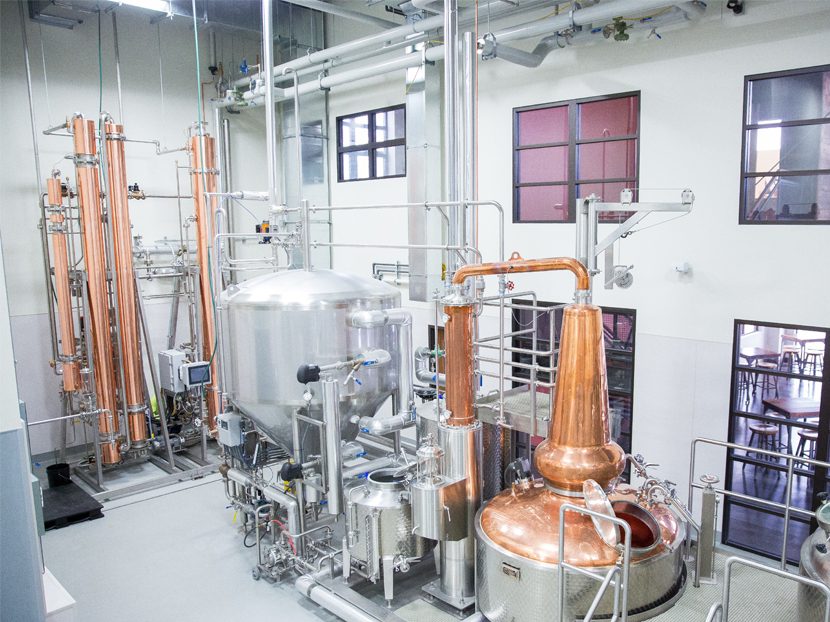Steam Boilers, Process Piping System Help Launch Wisconsin Distillery
Spirits maker requires reliable source of steam to make its signature rye whiskey.










When I tell people my two favorites things in the world are PHCP contractors and craft beer, no one seems to understand. It’s not like I don’t have other interests, it’s just that they all place a distant third, fourth and on down.
So you can imagine my delight when I heard about DeGarmo Plumbing & Piping Inc., a Janesville, Wisconsin contractor, and the work it did to open craft beer’s higher-octane brother.
Dancing Goat Distillery, in Cambridge, Wisconsin, opened last year with its first product, Limousin Rye. (Make a note of that unusual name since it plays a big part in the whiskey’s finishing touch.)
Heart and lungs
But to begin at the beginning, we started our tour in the boiler room where two Miura boilers sat, what Mike Reiber, the distillery’s chief operations officer, calls the “heart and lungs” of the business.
Reiber can’t do what he needs to do without steam since steam is what actually makes the finished product. Dancing Goat includes a 240-gallon copper pot still, a 1,200-gallon hot liquor tank and a continuous full column still.
The full setup isn’t often seen in the distillery business, Reiber says.
“The things we can do between two stills provide unique distillation,” Reiber explains. “We can dial in on the range of compounds that come off a certain boil point, and adjust it to flavor, taste, smell and the temperature range where these exist giving us a unique tool set to program the system accordingly.”
Live steam is also introduced into the column, which means there isn’t any need to heat up jacket materials.
“This gives us a single-pass solution for producing spirits up to 95 percent ABV (alcohol by volume), in 50 percent less time, while recovering significantly more alcohol per hour than a traditional pot still,” Reiber adds.
Steam on demand
But to make it all work, Reiber needs steam. More precisely, he needs steam on demand when he needs it. That’s where, naturally, DeGarmo comes in.
“We take great pride in the quality of our workmanship,” says Craig DeGarmo, president. “I attribute our ability to design and install these kind of piping systems to our team’s level of professionalism, experience, certification, and attention to detail, quality and safety.”
DeGarmo’s business, started in 1994, was a natural pick for the distillery. The full-service plumbing and piping contractor does a fair share of the process piping work needed in the area’s food-related industries. Before going into business for himself, DeGarmo worked for Tri-Cor Mechanical, also located in Janesville, alongside his father.
DeGarmo was referred to Dancing Goat Distillery initially by AMS Steam Products, Milwaukee, a distributor specializing in industrial process boiler room equipment.
DeGarmo took distillery co-owner Travis Hasse on a tour of the Seneca Foods plant in Janesville to show the extensive process piping his company designed and installed. DeGarmo’s crews have also done work at a Wisconsin Birds Eye plant and a Kikkoman factory.
Hasse hired DeGarmo Plumbing & Piping on the spot.
Two phases
DeGarmo operates out of an 8,000 square-foot fabrication shop and warehouse, and employs up to 20 plumbing and piping professionals. We met one of those pros, foreman Nate Gestrich, at the distillery.
“The distillery was piped in two phases,” Gestrich says. “The first phase included research and development and the second phase focused on the industrial piping with automation.”
Gestrich worked with Miura Boiler’s Chicago office, which provided the boilers, and AMS, which provided the boiler system design and training in phase one of the distillery piping project.
“The Miura boilers are a great fit for our continuous still because they provide clean consistent quality steam,” Reiber adds. “We don't want fluctuations in the steam pressure that add or subtract consistency to the process.”
Dancing Goat’s boiler room includes two Miura LX-50 SG LX Gas/Low NOx series, low and high pressure steam boilers to meet its steam needs.
“One of the many advantages of Miura boilers was their on-demand steam capabilities,” Reiber explains. “The company claims to produce full steam in less than five minutes. I timed it. The steam we needed was there in four minutes. That impressive feature saved us time and labor costs, while allowing us to be more productive.”
There were a number of other reasons why Miura made perfect sense.
“The benefits of having quick steam is huge," Reiber adds. "We don't have to have a dedicated boiler operator that tends to the boiler for eight hours prior to operation. We can basically go in, walk through, turn it on, fire it up and then that people can go do other value-added tasks that are required to run the facility.”
Miura boilers also make maintenance much easier as compared to traditional boilers and with Miura's efficient operation Reiber expects to save as much as 25 percent in fuel costs versus traditional boilers.
“A control pad allows us to have the two boilers on and have them balance each other out so there's a lead lag positioning,” Reiber adds. “And that feature also allows me to get updates on my phone as far as performance without actually having to go all the way back to the boiler room.”
Multiple piping systems
DeGarmo Plumbing & Piping designed and built multiple piping systems inside the two-story, 21,000-square-foot distillery, including stainless food grade tubing, air and gas piping, RO systems, Strahman stations with water and steam, and high-pressure steam-reducing stations.
The contractor also custom fabricated a whiskey barrel dumper and connected the pot still and equipment, the cookers and fermenters, and the continuous stripping column, and installed automated systems, panels, valves and pneumatics.
“Heating liquids and transferring materials is what we do a lot of,” Gestrich says. While this was the company’s first foray into piping a distillery, Gestrich confidently told us that “piping is piping.”
The contractor also worked closely with Yokogawa Engineers, an international provider of industrial automation and test and measurement solutions. Engineers at the company’s Newnan, Georgia, office programmed the automation of the steam system in phase two.
“We customized a piping system that was programmable, which ultimately increases production and decreases the need for manpower, Gestrich explains. “It gives Dancing Goat the ability to make a higher accuracy recipe and replicate it. Once they run a program, they can collect all the data on a specific cook and, with the information collected, repeat the recipe with precision.”





